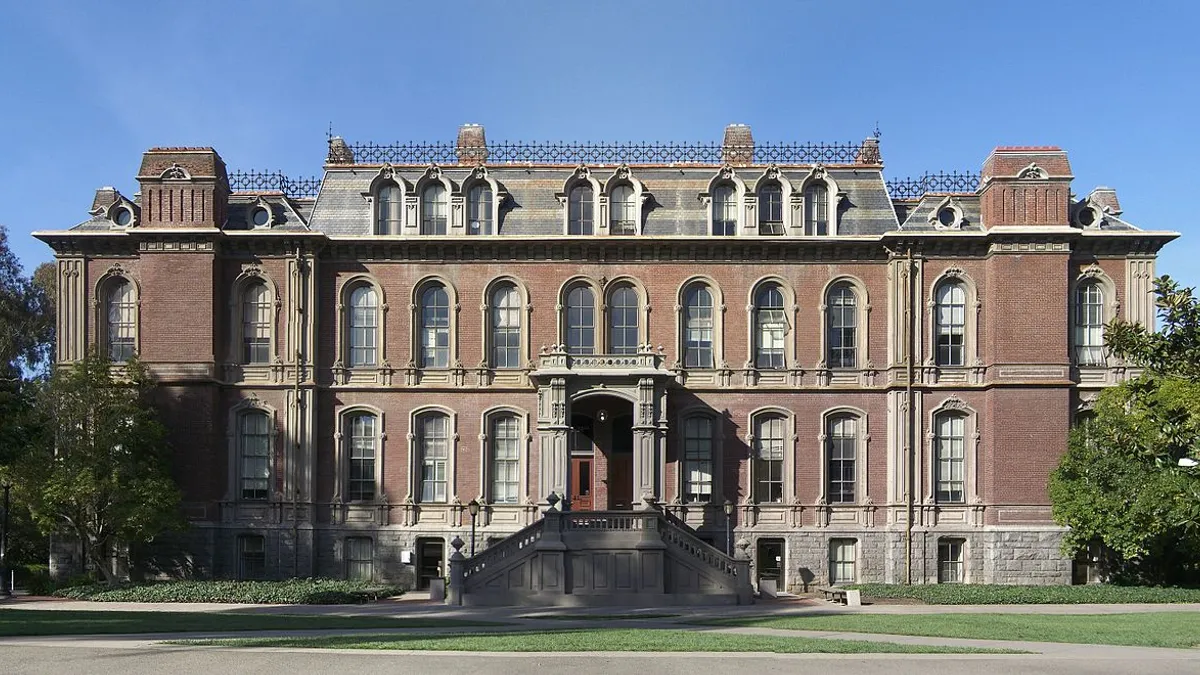Dive Brief:
- The University of California, Berkeley on Monday settled a free speech lawsuit with student groups that accused them of discriminating against conservative speakers, the San Francisco Chronicle reported.
- The groups filed the lawsuit last year after two controversial right-wing commentators, Ann Coulter and David Horowitz, canceled their speeches when the university bumped their evening talks to the day and moved their venues from the campus center.
- As part of the settlement, UC Berkeley will require host groups to obtain insurance for some events, and it is prohibited from charging security fees based on concerns the ideas expressed will "provoke disturbances." The university also agreed to pay $70,000 in attorneys' fees for the plaintiffs, the Berkeley College Republicans and Young America's Foundation.
Dive Insight:
The settlement comes as colleges balance the need to protect free speech on campus while ensuring security at events where speakers may stoke violence or unrest.
Securing these type of events can be expensive. For example, UC Berkeley spent more than $600,000 in additional security for a talk from conservative speaker Ben Shapiro. And last year, the university spent nearly $4 million in security costs for three free-speech events occurring in a one-month span.
The university heightened its security measures for such events after an earlier talk by right-wing provocateur Milo Yiannopolous in February 2017 was canceled when some masked demonstrators smashed windows and lit fires ahead the event.
Likewise, colleges across the U.S. have been shelling out to pay for heightened security around campus visits by controversial speakers. The University of Florida, for instance, paid more than $500,000 so white supremacist Richard Spencer could appear on campus after his visit was initially denied.
Some colleges have billed student groups security fees to host speakers, sparking outrage and legal challenges among those who argue these charges are an unconstitutional practice that stifle free speech and amount to a heckler's veto.
In May, Cornell University announced it would charge student groups as much as $3,900 for high-level security events. In response, the Foundation for Individual Rights in Education wrote the fees would create "financial roadblocks" for groups to invite speakers that provide "opportunities for valuable discussion."
Earlier this year, the University of Washington settled a lawsuit brought by its chapter of the College Republicans claiming the university's $17,000 charge for security fees at a campus rally was a violation of free speech, due process and equal protection. U of Washington agreed to pay more than $120,000 for their attorneys' fees.
One legal expert told The Chronicle of Higher Education that the courts may end up deciding more such cases involving disputes over who should pay the hefty security fees when controversial speakers come to campus.











